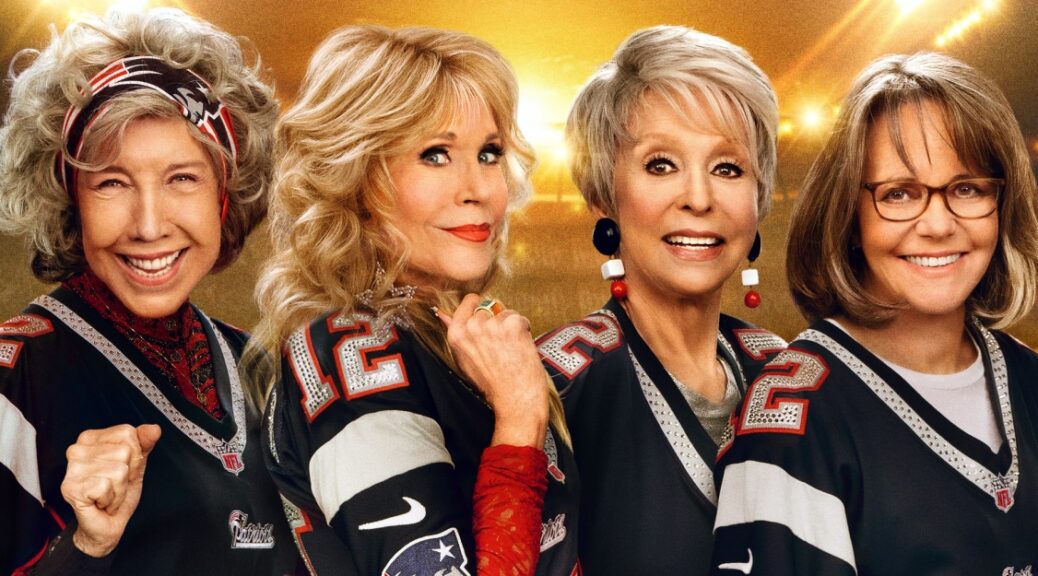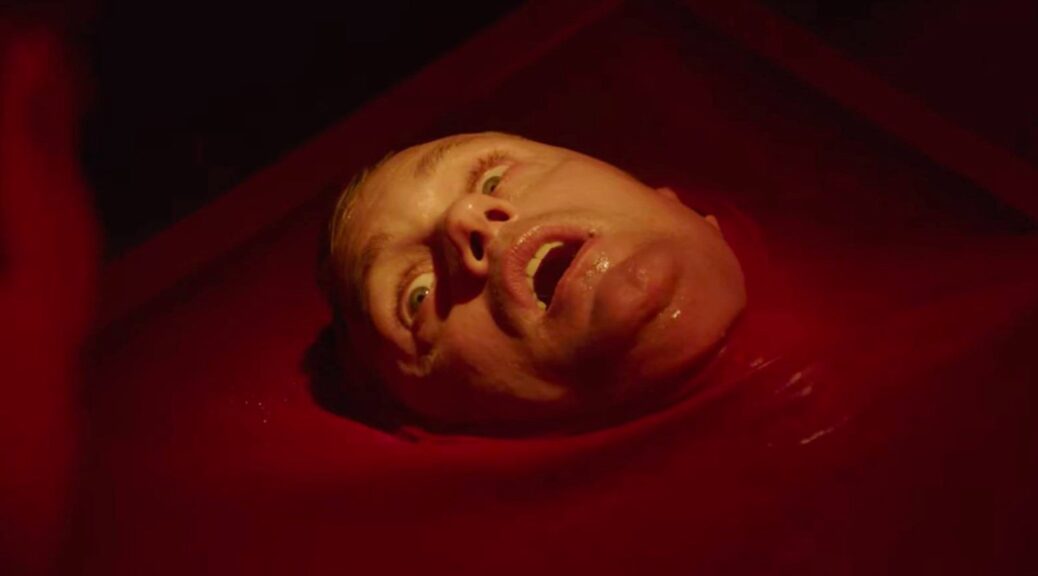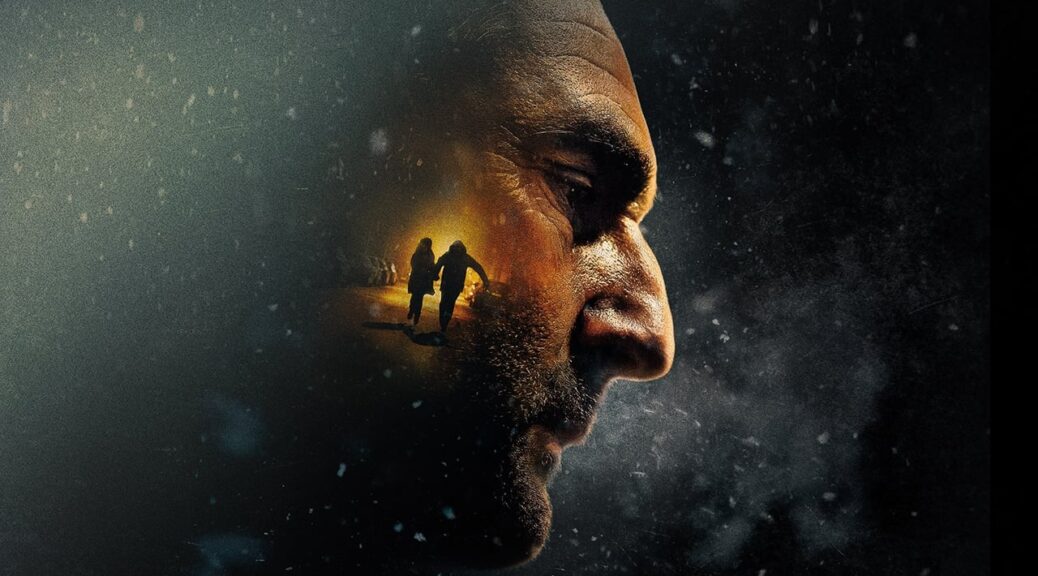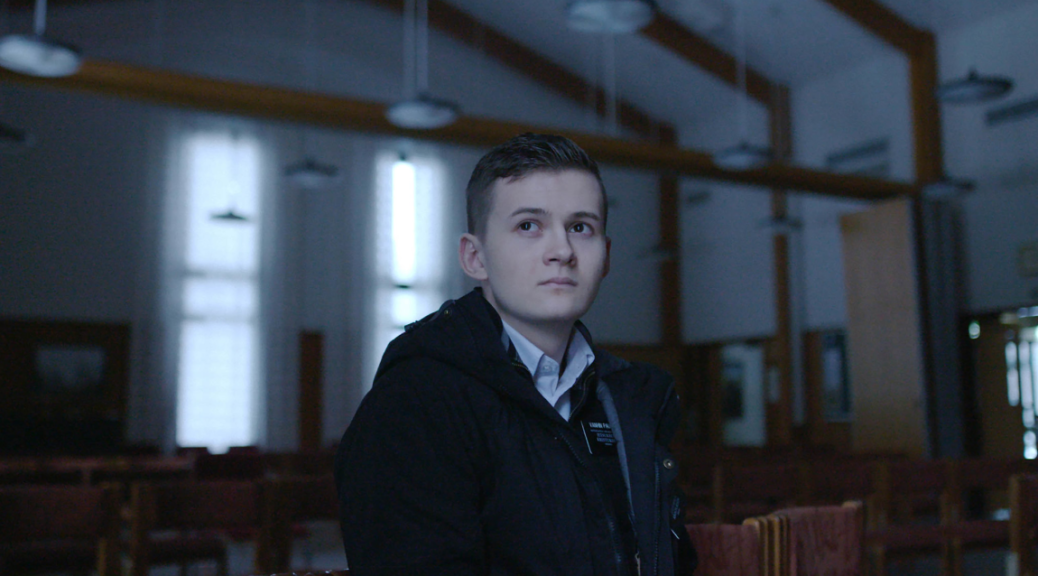80 for Brady
by George Wolf
You’ve seen those close-ups on a movie character pouring out their feelings, right? The ones where the camera pulls back to reveal that the person being spoken to has fallen asleep and missed every word?
If that’s still funny to you, 80 for Brady will deliver some laughs. If not, there’s at least the charm of seeing four legendary ladies coming together for some big screen hi-jinx.
Inspired by the real-life “Over 80 for Brady” fan club, the film follows elderly besties off to see Tom Brady and the New England Patriots take on the Atlanta Falcons back in Super Bowl 51.
Maura (Rita Moreno) is a widow living in a senior center. Betty (Sally Field) is “only 75” and a former M.I.T mathematician, Lou (Lily Tomlin) is a cancer survivor and Trish (Jane Fonda) is a divorcee who writes erotic Rob Gronkowski fan fiction (on one book cover: “football all isn’t the only game of inches!”)
But when Lou gets a new message to call her doctor, she calls an audible instead. Fearing this might be her last chance to see Brady win a title, Lou springs for four Super Bowl tickets, and the gang heads off to Houston.
Thankfully, the film centers on their time actually at the big game. But while this isn’t technically a road movie, writers Emily Halpern and Sarah Jenkins fill it with all the same type of very loosely connected skits that often make that genre so tiresome.
Betty enters a spicy wing-eating contest. Lou throws a football for prizes. They all get invited to a pre-game bash and accidentally take drugs. They get in the coach’s box. And of course there is a dance number. Even the promising cameos from Rob Corddry and Alex Moffat, as a pair of Masshole superfans with a call-in show, come up empty.
It’s all such lazy, old-fish-in-younger-waters humor that’s only mildly amusing at best, which is surprising considering Halpern and Jenkins penned the sly and very funny Booksmart in 2019. They are done no favors by the sitcom-ready treatment from first-time feature director Kyle Marvin, with artificial stadium segments rendered all the more amateurish next to the bounty of actual game film provided by the NFL.
Isn’t it just great to see these icons together, though, in anything? Sure it is, and by the time Brady himself (also a producer here) makes an appearance that manages a nod to his own mother’s cancer battle, you can’t deny the warm fuzzy footballs taking flight.
But as a comedy worthy of this Hall of Fame starting lineup, 80 for Brady feels like a personal foul.














